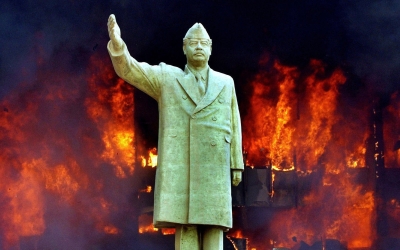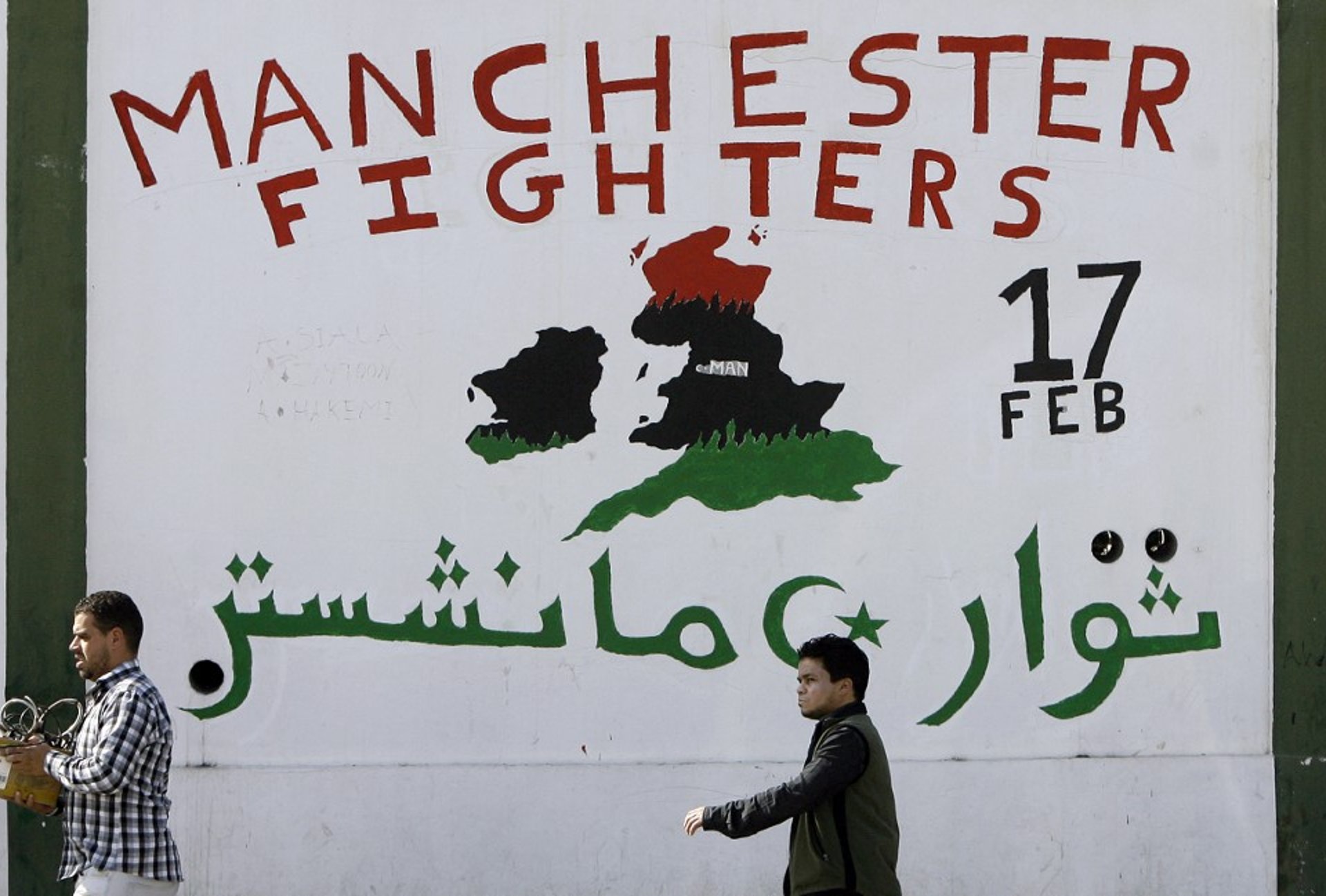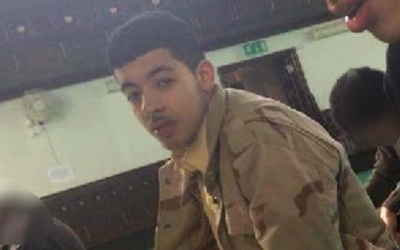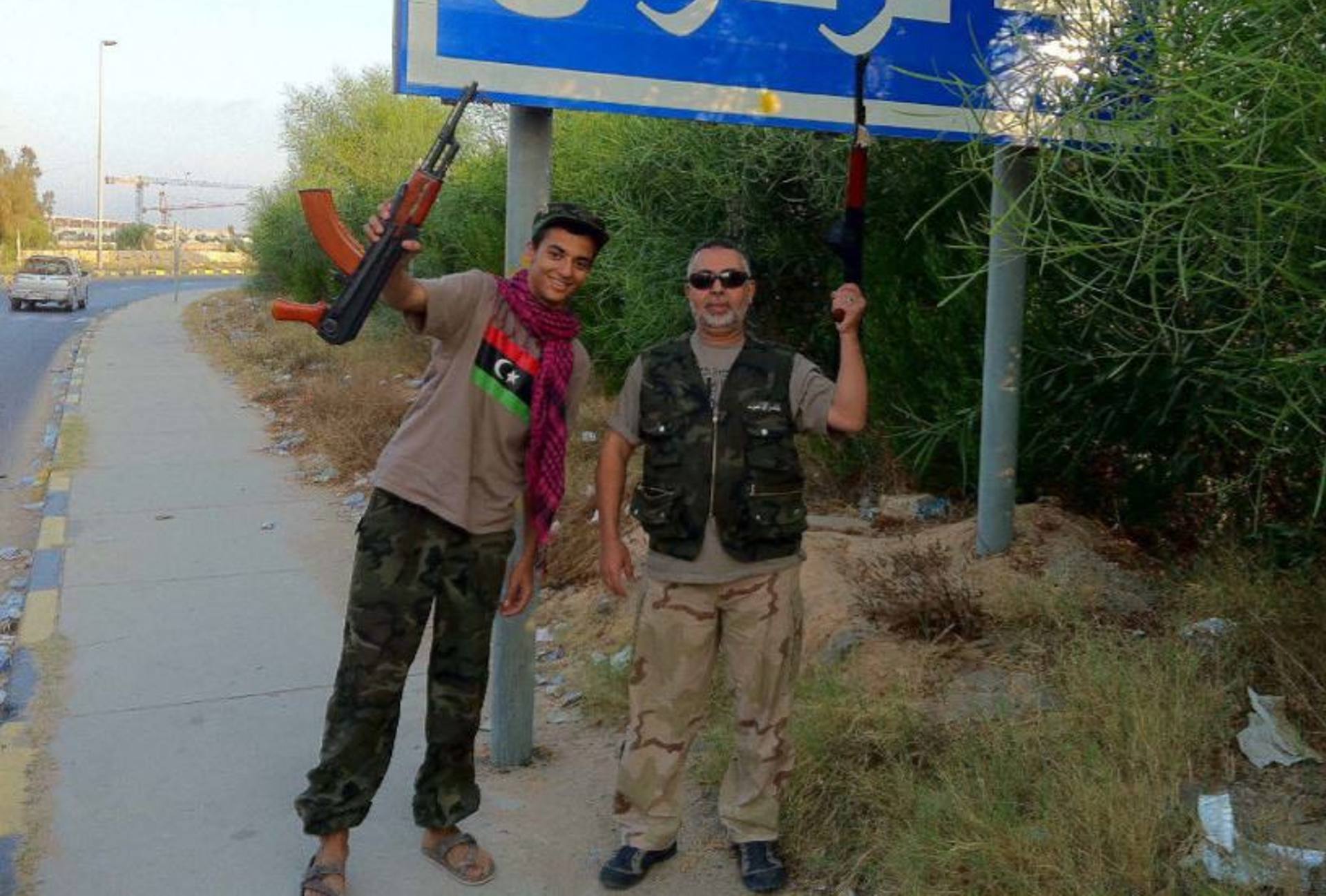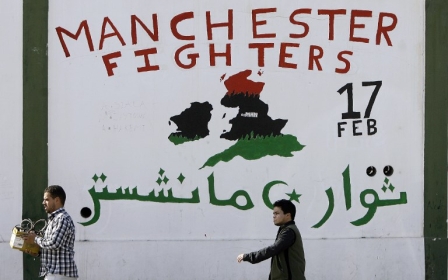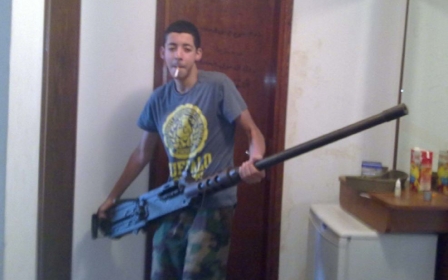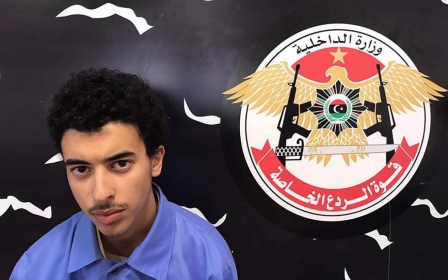Manchester Arena attack: Imam says he has been demonised by inquiry
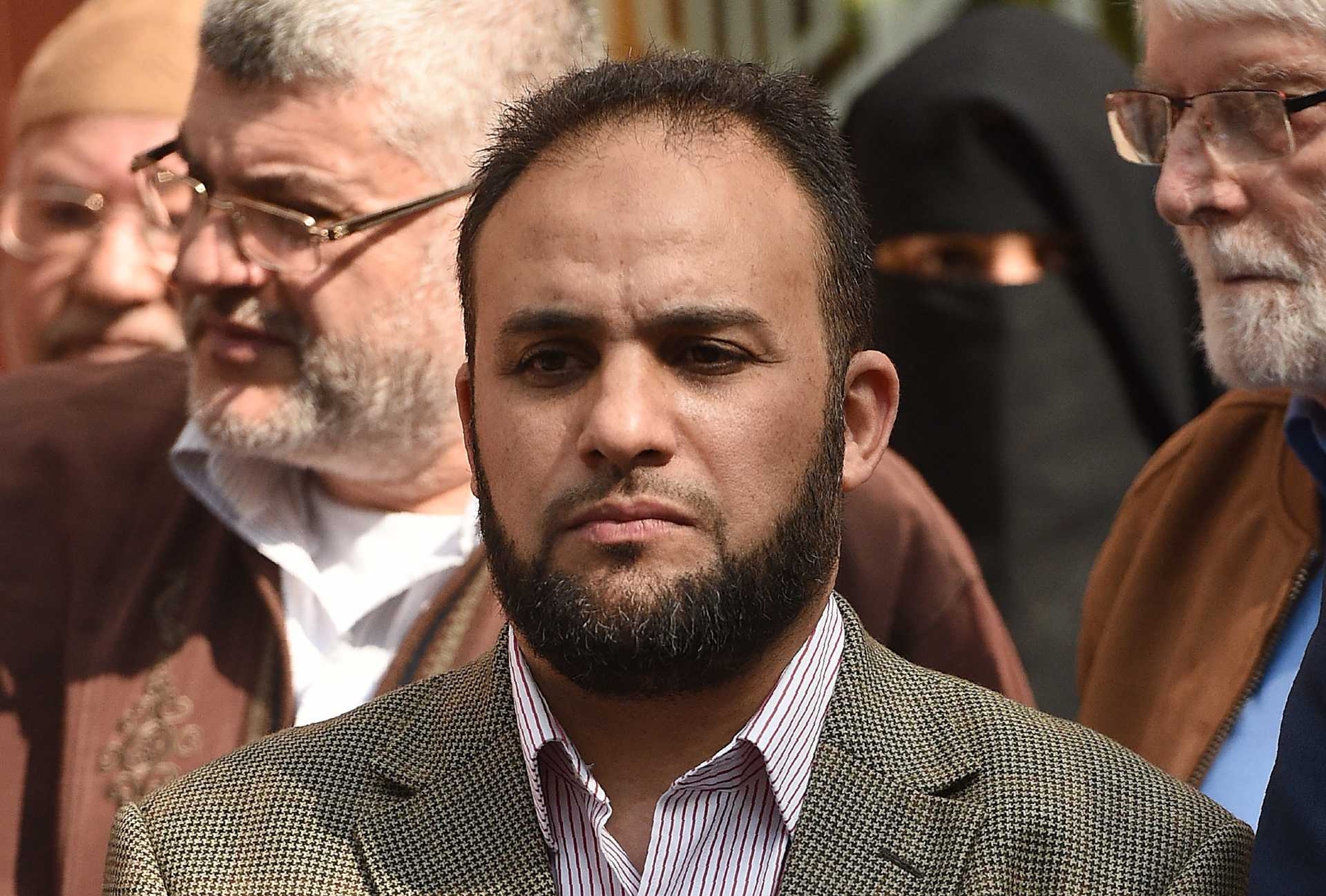
A former chief imam at an English mosque has complained of being demonised by a public inquiry into the Manchester Arena bombing carried out by a British-Libyan man in 2017.
In a statement, Mustafa Graf accused another former imam at the Manchester Islamic Centre of “trying to deceive the inquiry” in testimony given last month, in which he alleged Graf had preached support for Islamist militant factions in Libya with links to al-Qaeda and the Islamic State (IS) group.
New MEE newsletter: Jerusalem Dispatch
Sign up to get the latest insights and analysis on Israel-Palestine, alongside Turkey Unpacked and other MEE newsletters
Graf, who is understood to be currently in Libya, said those allegations were untrue. He accused Mohammed Saeed El-Saeiti of being hostile to him due to “tribal racism”. Graf is from western Libya while El-Saeiti is from Benghazi in the east.
Graf said El-Saeiti was a supporter of Khalifa Haftar, a military commander based in Benghazi who has been in conflict with the country’s internationally recognised government in Tripoli since 2014, and that he had stoked Libyan political tensions in the mosque.
“In this inquiry, it has come across to me and my family that I have been presented as some demon,” Graf said in the statement, which was published on the inquiry’s website on Thursday.
“My whole family and my children have been very upset by this treatment and smearing of their father, without even an opportunity to respond. So, I am responding to clarify the issues and clear my name.”
'Trial by media'
The inquiry is currently considering the “background and radicalisation” of Salman Abedi, a British-Libyan man who killed 22 other people and himself when he detonated a rucksack bomb as crowds were leaving an Ariana Grande concert at the Manchester Arena in May 2017.
The Manchester Islamic Centre, also known as Didsbury Mosque, has come under scrutiny at the inquiry over reports that Abedi - who was 22 at the time of the attack - and other members of his family, including his father Ramadan Abedi, attended it.
The centre has also faced questions over a BBC report in 2018 that alleged Graf had called for armed jihad in a sermon at the mosque following Friday prayers in December 2016, and had been filmed wearing military uniform alongside rebel fighters during the 2011 uprising against longtime Libyan leader Muammar Gaddafi.
In his statement to the inquiry, Graf said he had been “put on trial by the media” over the sermon, “of which one part has been twisted to suit the agenda of others”.
He said the sermon was intended to solicit donations to a Syrian aid charity collecting at the mosque at a time when then-rebel-held eastern Aleppo was under assault by pro-Syrian government forces.
"There was no other intention and everyone else who says otherwise is speculating," he said.
Graf said he had been subsequently investigated by the police and the mosque and cleared of any wrongdoing. The inquiry has heard that mosque officials warned him at the time of the sermon that his language could be misinterpreted.
"I wish to make it clear; I do not believe in calling for armed Jihad from the UK (or elsewhere, this is a matter for local scholars in areas of conflict)," he said.
"I do not believe in asking people to go and fight from the UK or elsewhere. As well as being against the law, I have witnessed the horrors of war for myself and would not wish any person to go through what I have seen."
Helped by British authorities
Graf said he had travelled to Libya in 2011 at the start of the uprising against Gaddafi to take his elderly parents to safety. He said he was captured and imprisoned while trying to leave the country.
After his release from prison in August 2011, Graf said he had performed duties as an imam “preaching the Islamic rules of law” alongside rebels fighting against pro-Gaddafi forces in western Libya.
He said he had been advised to wear military clothing to blend in but had not been on the frontline.
“Eventually the British authorities and the British embassy helped to get me out of Libya to safety and I have always been grateful for this. I was in regular correspondence with the British authorities until a safe passage became available,” he said in his statement.
In testimony to the inquiry last month, El-Saeiti alleged that Didsbury Mosque had tolerated the presence of a group of Libyans, including Ramadan Abedi and his sons, who were known to be supportive of hardline Islamist militias in Benghazi. El-Saeiti said these militias were linked to al-Qaeda and IS.
Ramadan Abedi, who is currently in Libya, is a suspect in the police investigation into the Manchester Arena bombing but has not been charged with any offence.
Hashem Abedi, Salman Abedi’s younger brother, was jailed for 55 years earlier this year after being convicted of helping to plan the attack.
Ismail Abedi, the eldest of the three brothers who the inquiry has heard sometimes helped to teach Quran classes at the mosque, left the UK in August after being summoned to give evidence. He is currently the subject of an arrest warrant.
'Dogs of hellfire'
El-Saeiti told the inquiry he had been threatened over a sermon he delivered at the mosque in October 2014, in which he described the Shura Council of Benghazi Revolutionaries, an Islamist militant alliance then fighting against Haftar’s Libyan National Army, as “dogs of hellfire”.
The inquiry saw a Facebook comment in which Ramadan Abedi called on worshippers at the mosque to “isolate” El-Saeiti, and a petition signed by 91 people, including Graf, Ismail Abedi and Hashem Abedi, calling for El-Saeiti to be dismissed.
In his statement, Graf said he had signed the petition because El-Saeiti’s sermon had been “hate speech”. He accused El-Saeiti of bringing Libyan affairs into the mosque by “using the same political line as Haftar”.
“His politics was shown in his sermon at the Mosque which he informed the inquiry about. His sermon deliberately provoked the congregation, especially the Libyans… many Libyans found such sermon insulting and had nothing to do with our Mosque or our lives in the UK,” he said.
El-Saeiti told the inquiry last month he was not affiliated with any political party or trend and that his sermon was “basically combating terrorism and extremism”.
Didsbury Mosque has also disputed El-Saeiti’s testimony. Giving evidence a day before El-Saeiti, Fawzi Haffar, the chairman of the mosque, accused the former imam of “holding a grudge against the trustees and the centre” and of lying to the inquiry.
The inquiry heard that the end of El-Saeiti's employment at the mosque in 2020 is currently the subject of an employment tribunal case.
El-Saeiti denied holding a grudge and told the inquiry: “I only said the truth which I know”.
Family's 'violent worldview'
In testimony on Thursday, Matthew Wilkinson, an academic appointed by the inquiry as an expert on Islamist radicalisation, said that Didsbury Mosque and others attended by Abedi did not appear to have had much effect on him “for good or bad” and that his attendance at Friday prayers had "blown hot and cold".
He said it appeared Abedi had been more influenced by his family’s own “worldview of violent Islamist extremism” and by peer groups involved in crime and sympathetic to IS.
The inquiry has previously heard that Ramadan Abedi had links to the Libyan Islamic Fighting Group, an anti-Gaddafi militant group proscribed as a terrorist organisation in the UK until 2019, and was a member of the 17th February Martyrs Brigade, a rebel faction joined by a number of British-Libyans during the 2011 uprising.
The inquiry has also seen photos of Salman Abedi and his brothers posing with heavy weaponry in Libya in 2011. Wilkinson said it appeared that Ramadan Abedi had taken his sons to Libya to fight.
“He was responsible for taking his sons out of school and to Libya to engage in fighting. He took his sons into a warzone where they were trained to fight,” he said.
Wilkinson said the family had a friendship with the son of Anas al-Libi, a suspected al-Qaeda operative previously based in Manchester who was captured by US special forces in Libya in 2013 and charged over the 1998 al-Qaeda bombings of US embassies in Kenya and Tanzania.
Libi died in US custody in 2015 before he could stand trial.
Wilkinson also highlighted the influence on Salman Abedi of his brothers. He said police had found a “toolkit of Islamic State propaganda” on Ismail Abedi’s phone during a Schedule 7 border stop in 2015. Hashem Abedi’s online posts also indicated he held an Islamist extremist worldview by 2014, Wilkinson said.
In his statement, Graf said a video shared with the inquiry by Greater Manchester Police which showed him sitting in the mosque with Ramadan Abedi was a marriage ceremony in 2015 for Ismail Abedi, which he had been asked to perform by Abedi’s father-in-law.
“At that time no one knew of any problems with Abedi and his father,” Graf said. “If I had been aware of the problems the Abedi children were having I would certainly have tried to help them and direct them toward a genuine Islamic direction. However none of us had any idea.”
The inquiry continues on Monday.
Middle East Eye delivers independent and unrivalled coverage and analysis of the Middle East, North Africa and beyond. To learn more about republishing this content and the associated fees, please fill out this form. More about MEE can be found here.


